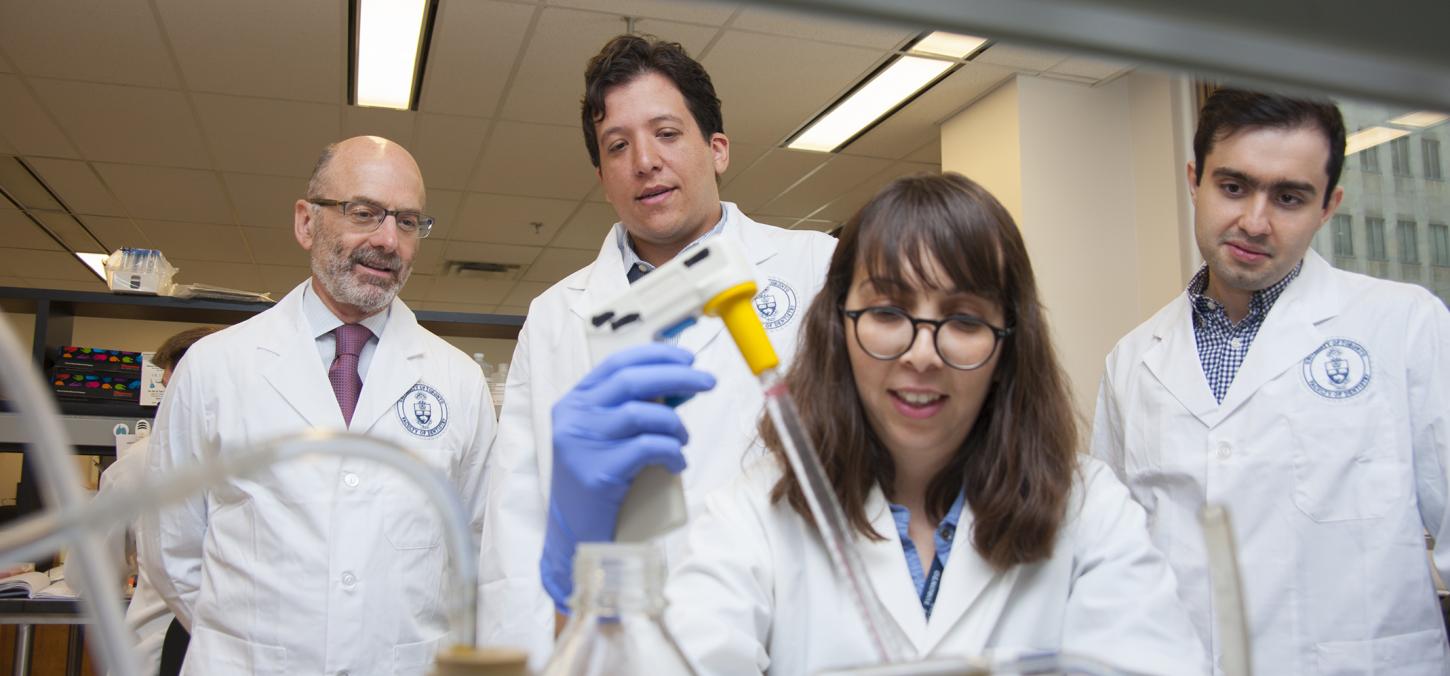
Study: Oral Inflammation Promotes Oral Squamous Cell Carcinoma Invasion
In a first-of-its-kind study, Assistant Professor at U of T’s Faculty of Dentistry, Marco Magalhaes and his colleagues investigate oral inflammation and how it stimulates oral squamous cell carcinoma invasion. The study, "Oral Inflammation Promotes Oral Squamous Cell Carcinoma Invasion", was published online on June 26 in Oncotarget.
Dr. Magalhaes, also a staff Oral Pathologist at Sunnybrook Health Sciences Centre, and his collaborators Cameron Goertzen, Hayder Mahdi, Catherine Laliberte, Tomer Meirson, Denise Eymael, and Hava Gil-Henn, examined patients with oral cancer, and investigated inflammatory markers in their saliva and tissue samples. The objective of this study was to characterize oral squamous cell carcinoma (OSCC) associated inflammation and to determine the molecular mechanisms underlying inflammation-mediated OSCC invasion.
Dr. Magalhaes has previously shown that neutrophils, a common inflammatory cells found in saliva can increase the invasiveness of cancer cells. In this study, the authors showed that several inflammatory markers and cells including neutrophils and TCD4 cells are increased in oral cancer patients, as well as the key inflammatory mediator TNFα. The authors analyzed how TNFa induces significant changes to the cancer cells leading to increased invasion and the recruitment of more inflammatory cells and ultimately poor disease-free survival.
“We show here that TNFα promotes a pro-inflammatory and pro-invasion phenotype leading to the recruitment and activation of inflammatory cells in a paracrine mechanism,” said Dr. Magalhaes. “This represents a significant advancement of oral cancer research and will support new treatment approaches to control OSCC invasion and metastasis.”
Oral squamous cell carcinoma (OSCC) represents the majority of oral cancers, and the poor outcome of this disease is attributed to late detection and presence of metastasis at the time of diagnosis. For localized disease without metastasis, the 5-year survival rate is 80% but drops to 59% and 36% in regional and disseminated disease respectively. This survival rate has not significantly improved in the last three decades, emphasizing the need to better understand OSCC pathogenesis to increase patient survival and decrease morbidity.
The results demonstrate a novel mechanism by which TNFα stimulates OSCC invasion. “Based on our results, we show that oral inflammation in cancer patients determine a “pro-tumor” environment that promotes cancer invasion and consequent metastasis” said Dr. Magalhaes. “In combination with our previous findings, we have established a mechanism by which oral cancer modulates oral inflammation leading to worse prognosis and this is dependent on the key inflammatory mediator TNFa .”
Now, said Dr. Magalhaes, they can better understand how to create strategies to promote inflammation that is beneficial for us – the ‘anti-tumour’ inflammation. There is a shift already, he says. “Oral cancer is a perfect example of a cancer that is commonly associated significant inflammation and unlike other tumors and this may be a target for new therapies.”
Professor Magalhaes is the recipient of a Connaught New Researcher Award for 2017-2018.